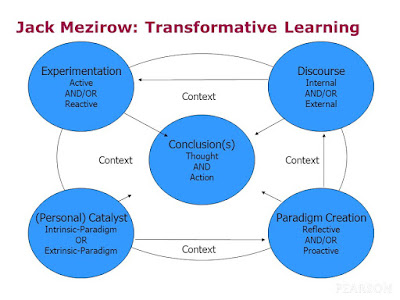Dr. Jeff Borden
In-service within the Diocese of St. Petersburg; Bethany Center
February 8, 2017
Sleep – can have a huge impact on cognitive functioning
-interrupting REM sleep cycle can have the brain function as
it would with BAC at 0.1
-John Medina - Brain Rules
-larks - morning people; owls - function well in the evening; hummingbirds - swing back and forth
-if we can't use what we know about how brains function best then we must mitigate the effects
Learning is not transactional - when we learn something new, it competes with an old piece of knowledge; it is not merely replaced
We are wired to seek connections - the only time the social brain does not seek out connection is when we do a task
-when we add social and task together, good things result (Matthew Lieberman)
Power of stories - brain activity in both story teller and story listener are similar vs. facts - only the fact teller's brain is activated
Do - show - tell - review - ask
Pattern recognition - when you discover a pattern for the first time your brain releases both dopamine and endorphins
Knowledge does not mean understanding
-Neuro-plasticity
Rigor - reduce anxiety (glutamate) but also avoid boredom (cortisol)
-need to capitalize serotonin - good sleep, right diet and introduce norepinephrine through appropriate challenges, belief then kicks in - dopamine - that they will accomplish the task, endorphins then result as a reward of success
Notes you can use (S. Carroll)
-Metadata - presenters name, date, topics, etc.
-connections - what the presentation was "supposed" to convey
-notes - aha moments - in drawings (low fidelity and meaningful synthesis)
-summarize at the bottom - what's worth remembering
*for best results review summary within 24 hours
"Do not confine your children to your own learning for they were born in another time."
Communication - nonverbal - haptics, objectics, proxemics, chronemics, optics, vocalics, kinesics
-"the majority of communication in the workplace takes place over email and chat today" (2007 NY Times)
-"leading more and more Fortune 500 companies to ask if future employees have taken an online class" (2009 Wall St. Journal)
Learning is risky - we must be willing to take a risk
Puentedura (2002): SAMR
Redefinition
Modification
Augmentation
Substitution
David Wiesner's Spot - HMH https://itunes.apple.com/us/app/david-wiesners-spot/id963746523?mt=8
Motion Math Educator Suite
Google Translate
Aurasma Demo - augmented reality
All My Faves
We must be good curators of all of the many assets that we have at our disposal
-technology
-apps
-devices
-information in abundance
Social bookmarking - https://del.icio.us
-allows you to bookmark websites but access from any device
Associations - thinking with another box
-innovation
-creativity
Jeff Dyer - associative thinking - take something from one context and apply it to a new one
How do you have a great idea?
-have a lot of ideas
"work creates work, effort creates effort, and ideas create more ideas"
Try to solve problems based on how a successful company would tackle it
-i.e. how would Disney tackle this problem
Dan Meyer - "DO" 1st + Compelling Questions
-which line in a store is better - one with one person with 19 items or one with four people with 3, 5, 2, 1 items each
Our brains are wired for efficiency
-we'd rather be done vs. right
-we often don't want to learn or be taught
-must be motivated into it
John Medina - pictures have a staggering effect on memory vs. words
-declarative information - facts
-visual indexing - information is trying to get into the hippocampus - non-declarative and declarative
-our brains want to pull non-declarative and declarative at the same time
Golden shovel questions
-70% of people who win the lottery end up bankrupt - didn't put much into getting that much money
-when we work for something we want to retain it
-asking questions to get people to arrive at their own answers
Stories are memory aids, instruction manuals and moral compasses
-ethos - credibility
-pathos - passion
-logos - logic
-mythos - shared narrative
Immediacy contextualizes
-immediacy - the perceived physiological or psychological closeness in the sender / receiver relationship
*distance creates coldness - the further away the more there is a separation from the connection between speaker / listener
-people like (learn from) people with pets, kids, hobbies, subject matter into real life
Stories - convey connection and immediacy
Metaphor / Analogy - leads to critical thinking
-How People Learn -https://itunes.apple.com/us/book/how-people-learn/id590359968?mt=11
Employ narrative at every step of the learning process
Story Recipe - how to tell a good story
-arc plot - different than a report that is merely a listing of facts
-conflict / disequilibrium is the key component of the story
Transformative (Human) Learning - Jack Mezirow
5 must have qualities of the modern employee (1950 - 2005)
-communicate effectively
-become efficient
-be an expert
-loyalty
-work ethic
2005 -
-embrace change
-lead
-be autonomous
-collaborate
-curate / focus (Jacob Morgan, "The Future of Work")

